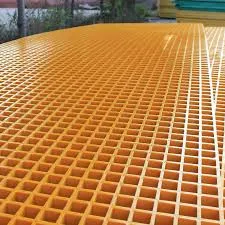
-
 Afrikaans
Afrikaans -
 Albanian
Albanian -
 Amharic
Amharic -
 Arabic
Arabic -
 Armenian
Armenian -
 Azerbaijani
Azerbaijani -
 Basque
Basque -
 Belarusian
Belarusian -
 Bengali
Bengali -
 Bosnian
Bosnian -
 Bulgarian
Bulgarian -
 Catalan
Catalan -
 Cebuano
Cebuano -
 China
China -
 China (Taiwan)
China (Taiwan) -
 Corsican
Corsican -
 Croatian
Croatian -
 Czech
Czech -
 Danish
Danish -
 Dutch
Dutch -
 English
English -
 Esperanto
Esperanto -
 Estonian
Estonian -
 Finnish
Finnish -
 French
French -
 Frisian
Frisian -
 Galician
Galician -
 Georgian
Georgian -
 German
German -
 Greek
Greek -
 Gujarati
Gujarati -
 Haitian Creole
Haitian Creole -
 hausa
hausa -
 hawaiian
hawaiian -
 Hebrew
Hebrew -
 Hindi
Hindi -
 Miao
Miao -
 Hungarian
Hungarian -
 Icelandic
Icelandic -
 igbo
igbo -
 Indonesian
Indonesian -
 irish
irish -
 Italian
Italian -
 Japanese
Japanese -
 Javanese
Javanese -
 Kannada
Kannada -
 kazakh
kazakh -
 Khmer
Khmer -
 Rwandese
Rwandese -
 Korean
Korean -
 Kurdish
Kurdish -
 Kyrgyz
Kyrgyz -
 Lao
Lao -
 Latin
Latin -
 Latvian
Latvian -
 Lithuanian
Lithuanian -
 Luxembourgish
Luxembourgish -
 Macedonian
Macedonian -
 Malgashi
Malgashi -
 Malay
Malay -
 Malayalam
Malayalam -
 Maltese
Maltese -
 Maori
Maori -
 Marathi
Marathi -
 Mongolian
Mongolian -
 Myanmar
Myanmar -
 Nepali
Nepali -
 Norwegian
Norwegian -
 Norwegian
Norwegian -
 Occitan
Occitan -
 Pashto
Pashto -
 Persian
Persian -
 Polish
Polish -
 Portuguese
Portuguese -
 Punjabi
Punjabi -
 Romanian
Romanian -
 Russian
Russian -
 Samoan
Samoan -
 Scottish Gaelic
Scottish Gaelic -
 Serbian
Serbian -
 Sesotho
Sesotho -
 Shona
Shona -
 Sindhi
Sindhi -
 Sinhala
Sinhala -
 Slovak
Slovak -
 Slovenian
Slovenian -
 Somali
Somali -
 Spanish
Spanish -
 Sundanese
Sundanese -
 Swahili
Swahili -
 Swedish
Swedish -
 Tagalog
Tagalog -
 Tajik
Tajik -
 Tamil
Tamil -
 Tatar
Tatar -
 Telugu
Telugu -
 Thai
Thai -
 Turkish
Turkish -
 Turkmen
Turkmen -
 Ukrainian
Ukrainian -
 Urdu
Urdu -
 Uighur
Uighur -
 Uzbek
Uzbek -
 Vietnamese
Vietnamese -
 Welsh
Welsh -
 Bantu
Bantu -
 Yiddish
Yiddish -
 Yoruba
Yoruba -
 Zulu
Zulu
GRP Insulated Tanks for Efficient Temperature Control and Storage Solutions
Understanding GRP Insulation Tanks Benefits and Applications
Glass Reinforced Plastic (GRP) insulation tanks have emerged as a popular solution for numerous industries requiring dependable storage solutions. These tanks are constructed from a polymer matrix combined with glass fibers, resulting in a lightweight yet incredibly robust material. Their combination of strength and insulation properties makes them ideal for various applications, ranging from water storage to chemical processing.
What is GRP?
GRP is a composite material that utilizes glass fiber as the reinforcing agent and resin as the binding matrix. This combination produces a strong material that is resistant to corrosion, temperature fluctuations, and stress. One of the primary advantages of GRP is its low maintenance requirement, especially when compared to metal tanks that may succumb to rust or degradation over time.
Insulation Properties
The insulation properties of GRP tanks are of paramount importance, especially in applications where temperature control is critical. GRP insulation tanks are designed to maintain the temperature of the contents, whether they are hot or cold. This insulation is crucial for preventing heat loss in hot water tanks or protecting sensitive materials that require a stable temperature range.
The insulation performance can be attributed to the material’s inherent properties. GRP has low thermal conductivity, which minimizes the transfer of heat. Many manufacturers also integrate additional insulation materials, further enhancing the thermal efficiency of the tanks. This is particularly beneficial in sectors such as food processing, pharmaceuticals, and chemical manufacturing, where temperature fluctuations can impact product quality.
Advantages of GRP Insulation Tanks
1. Corrosion Resistance GRP is highly resistant to chemicals and environmental factors, making it suitable for storing aggressive substances without degrading over time.
2. Lightweight Compared to traditional materials like steel, GRP is significantly lighter, facilitating easier transport and installation. This can lead to reduced costs in terms of shipping and labor.
grp insulation tank

3. Customizability GRP tanks can be molded into various shapes and sizes, allowing for custom solutions that fit specific needs within different industries.
4. Cost-Effective Although the initial investment might be higher than conventional storage solutions, the long-term savings in maintenance and durability usually offset the costs, making GRP tanks a wise financial choice.
5. Eco-Friendly GRP tanks are typically more environmentally friendly, as they can be manufactured with recyclable materials and have a longer life span, reducing waste.
Applications
GRP insulation tanks are utilized across a broad spectrum of industries. In the water treatment sector, these tanks are employed for storing potable water, wastewater, and chemicals used in treatment processes. Their insulation capabilities ensure that the quality of water is maintained without contamination from external temperatures.
In the food and beverage industry, GRP tanks are utilized for the safe storage of ingredients. Their corrosion resistance is vital for storing acids or other corrosive substances, and their insulation helps maintain the quality and safety of food products.
Pharmaceutical companies also benefit from GRP insulation tanks, as they provide a sterile environment necessary for the storage of medicines and vaccines that demand stringent temperature controls.
Conclusion
In conclusion, GRP insulation tanks present a modern and reliable solution for various storage needs across multiple industries. Their robust construction, combined with excellent insulation properties, makes them an indispensable asset for businesses focused on efficiency, safety, and sustainability. As industries continue to prioritize effective storage solutions, GRP insulation tanks will undoubtedly play a significant role in their future investments. Companies looking to enhance their operational capabilities should consider the advantages that GRP provides, thereby ensuring they remain competitive in an ever-evolving market.









